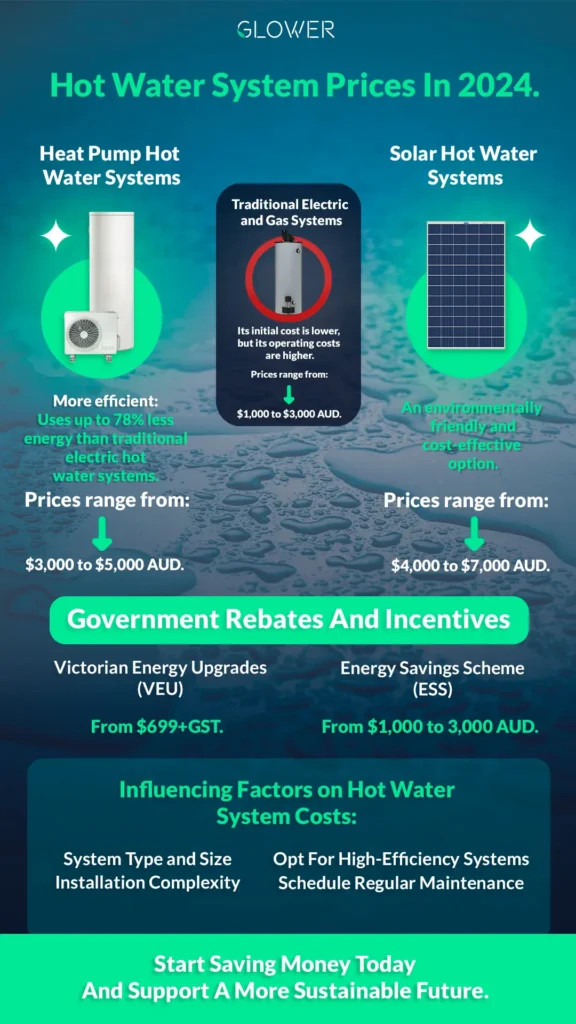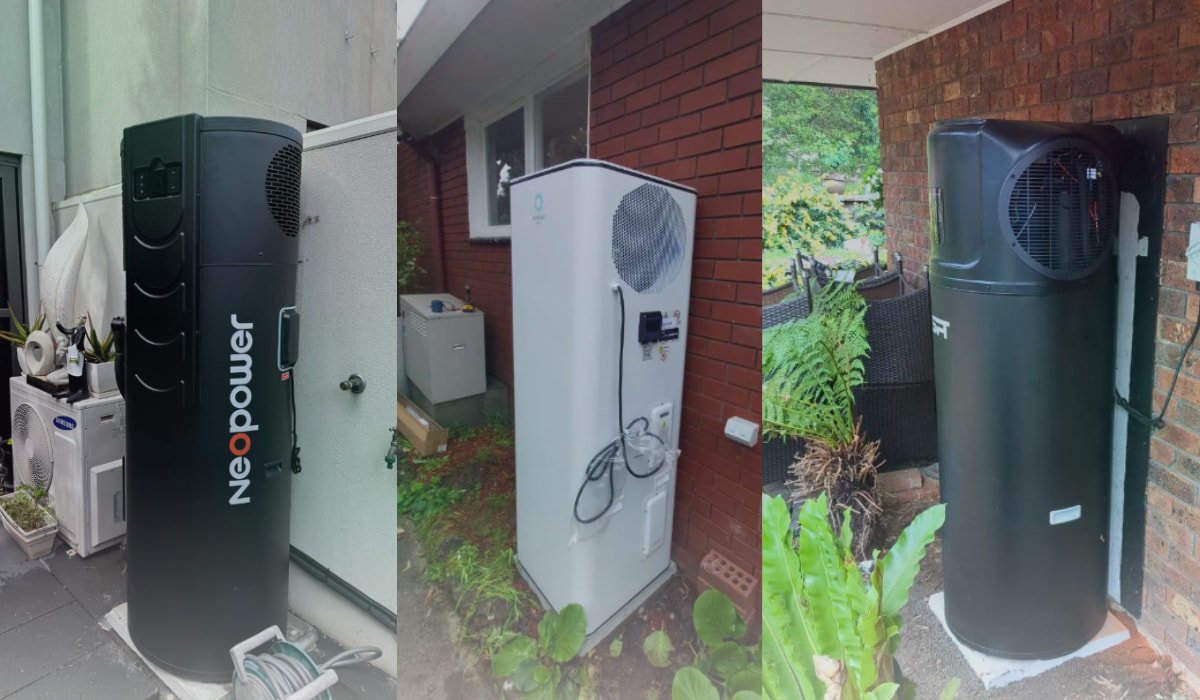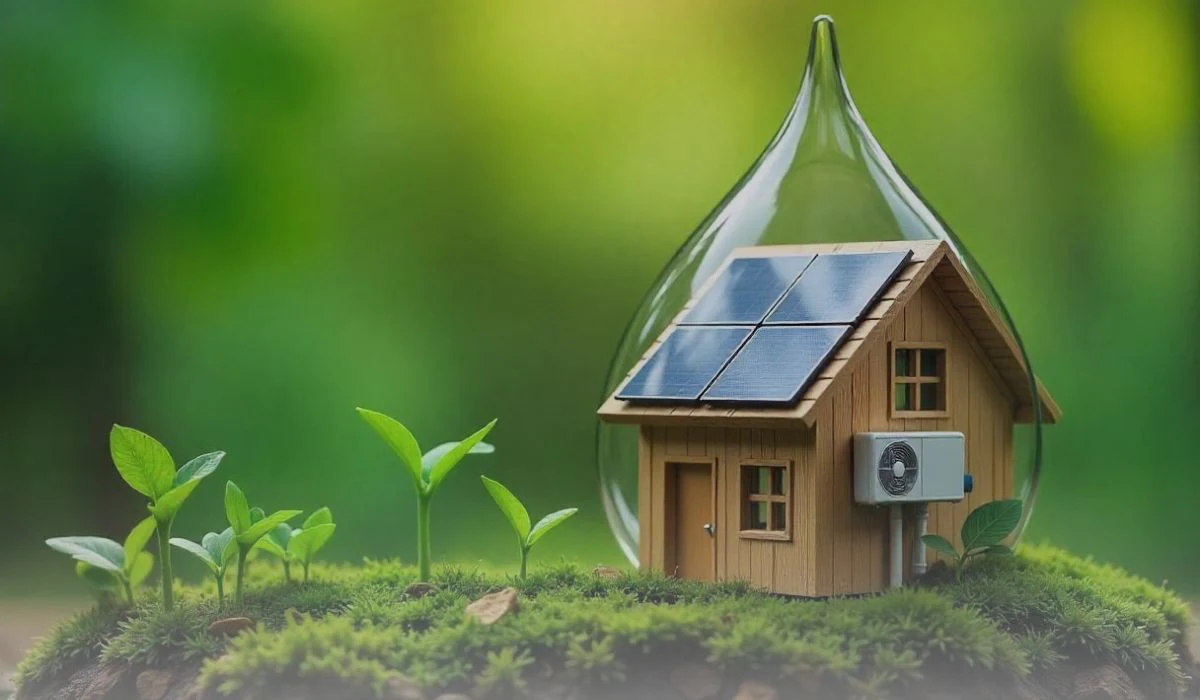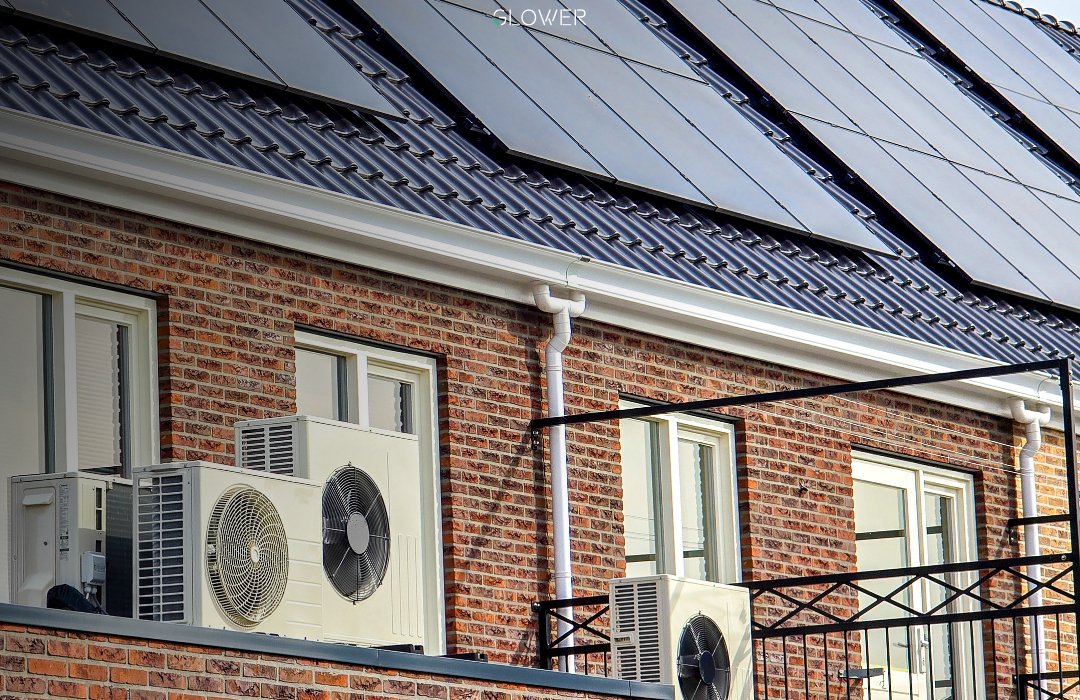As we dive into 2024, finding the right hot water system for your home can be a smart investment in comfort, efficiency, and energy savings. At Glower, we understand that Australians are increasingly prioritising sustainability, affordability, and long-term savings. That’s why we’ve crafted this guide on hot water system prices in 2024 and what to look for when choosing a system that meets your needs.
1. Why hot water system prices are changing
Hot water system prices in 2024 are influenced by several factors, including advances in technology, government incentives, and shifts towards more sustainable energy sources. With the demand for eco-friendly solutions on the rise, you’ll notice more options available, each designed to help you save on energy costs and reduce your carbon footprint.
- Heat Pump Hot Water Systems: These systems are known for their efficiency and are designed to use up to 78% less energy than traditional electric hot water systems. They’re an excellent option for those looking to minimise environmental impact.
- Solar Hot Water Systems: Although solar systems have a higher upfront cost, the long-term savings make them a popular choice, particularly in sunny climates. Government support for renewable energy has kept hot water system prices in 2024 competitive, making them a great investment.
2. Average Hot Water System Prices in 2024
Let’s break down the expected costs for different types of hot water systems in Australia this year:
- Heat Pump Hot Water Systems: Prices range from $3,000 to $5,000 AUD, depending on capacity and installation requirements. These systems are ideal for families who want to keep their bills low and reduce their carbon footprint. You may also qualify for government rebates of up to $3,000, helping to reduce initial costs and contribute to a greener future.
- Solar Hot Water Systems: On average, you can expect to pay between $4,000 and $7,000 AUD. While the initial investment may seem high, the system can often pay for itself in savings within five to ten years. Many Australians also qualify for government rebates that can significantly reduce hot water system prices in 2024.
- Traditional Electric and Gas Systems: These systems tend to have lower upfront costs, ranging from $1,000 to $3,000 AUD. However, they generally have higher running costs compared to heat pump and solar systems.
3. What Influences Hot Water System Prices?
Several factors impact hot water system prices in 2024, including:
- System Type and Size: The larger the capacity and the more efficient the system, the higher the price tends to be.
- Installation Complexity: Certain systems, like solar hot water systems, may require more complex installations that can raise the total cost.
- Government Rebates and Incentives: In 2024, both the Victorian Energy Upgrades program and New South Wales offer rebates for heat pumps and solar systems, which can make these options even more affordable.
If you’re interested in understanding your eligibility for rebates, check out our blog on Victorian Energy Upgrades and see how you can benefit!

4. Tips for Saving on Hot Water System Costs
Investing in the right system can provide long-term savings on both your energy bills and maintenance costs. Here are a few tips to make the most of your purchase:
- Take Advantage of Government Rebates: Programs like the Victorian Energy Upgrades and incentives in New South Wales can help you save on initial costs. By choosing a qualified system, you could access rebates that lower the overall hot water system prices in 2024.
- Opt for High-Efficiency Systems: While heat pumps and solar systems may have a higher upfront cost, they generally offer substantial savings over time due to reduced energy use.
- Schedule Regular Maintenance: Routine maintenance can prolong the lifespan of your hot water system and ensure it runs at peak efficiency. This can also prevent costly repairs down the line.
5. The Environmental Impact: Why Choosing Sustainable Systems Matters
In addition to cost savings, switching to an energy-efficient hot water system is a smart choice for reducing your carbon footprint. Glower is committed to promoting systems that offer real benefits for the environment. Choosing more sustainable options allows you to save while preserving natural resources.
6. Get Started Today
Choosing the right hot water system in 2024 can help you save money and support a more sustainable future. At Glower, we’re here to help you find the ideal solution for your home.
Ready to upgrade your hot water system? Contact us today for a free consultation and let us help you make a positive impact on your energy bills and the environment!





